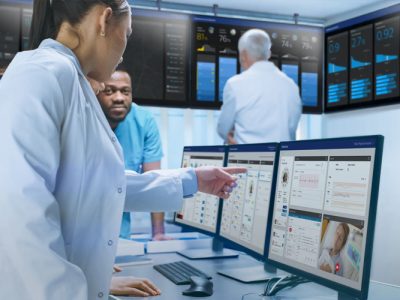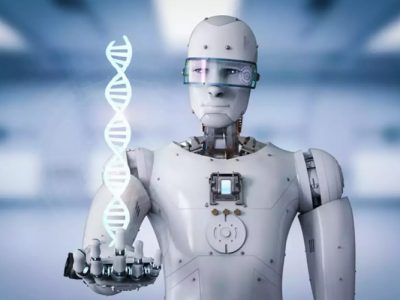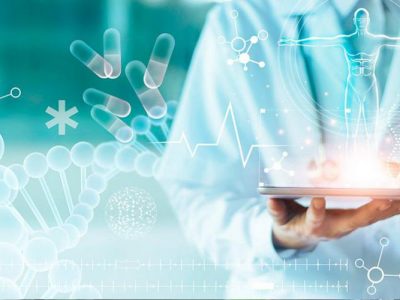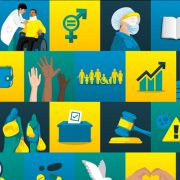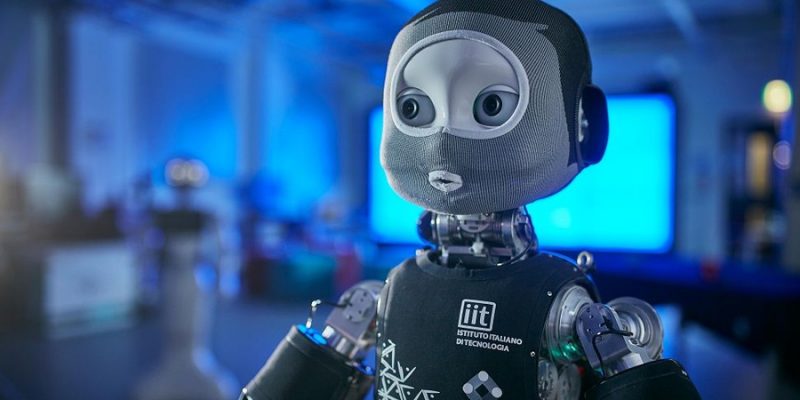
The health care industry is utilizing AI and Robotics to improve the overall condition of the health care sector.
What is AI in healthcare?
AI in healthcare is helping professionals to detect various diseases like cancer, HIV, diabetes, chronic heart diseases, etc. their early stages. It has enabled doctors to take a more global approach towards treating various health conditions, medicine testing, and giving long-term medication plans to patients. AI helps provide quick responses and take crucial decisions instantly by allowing doctors to contact each other from anywhere to perform various surgical techniques and operation procedures. With the help of AI technology, medical professionals can understand their patients by knowing about their lifestyle, food habits, past health records and suggest treatments accordingly. It also provides quick feedback and guidance to the patients for staying healthy.
Robotics have been used in the healthcare industry for more than 30 years now. From laboratory robots working with medicines to surgical robots who undergo surgeries or operations themselves to robots who look after patients post-operation. Robots can help people remain healthy without any medication or hospitalization for long. For example, Intel provides new technology to develop health robots that include surgical robots, modular robots, service robots, mobile robots, and autonomous robots, expanding its reach in many different areas of the health sector.
AI is enabling a personalized path to health and well-being in the following ways:
Diagnosis of diseases at an earlier stage:
Tools of AI have enabled doctors to diagnose chronic diseases like cancer, HIV aids, heart diseases, diabetes, kidney diseases, etc at an early stage. If such health conditions are left unassisted on time might lead to disability and death. Organizations and hospitals are increasingly using AI to improve chronic diseases management and patients’ health resulting in more personalized care. For example, IBM Watson is a computer system that is known for providing 99% accuracy in the detection of cancer and also talks about various ways of diagnosis. The use of AI and robotics in hospitals have reduced the risk of misdiagnosis and medical errors, which causes thousands of deaths every year.
AI for Surgeries or operations:
AI has enabled machines and robots to take over operations as well. Surgical robots help in carrying out surgeries without much complexity. AI-enabled robots use computer visuals to operate on specific areas without troubling other nerves, tissues, or muscles. Various high-definition 3D computers and equipment are used to provide surgeons with detailed information about the problem and help them carry out operations efficiently. Such robotic assistance is available in any size and shape from tiny bots that go inside a patient’s body to detect diseases to large robots that act as an extra hand of the doctors for assisting.
AI for Fitness:
Fitness is becoming a matter of concern for many people due to their hectic lifestyles. Many healthcare companies have come up with various fitness apps and wearables which guide them with their concerned problem. From working out, steps walked, calories burnt, distance covered, sleeping patterns to oxygen level everything can be seen within these apps and rectify them. They also create personalized diet charts according to their needs.
AI for Mental Health:
Mental health is one of the most growing sectors in the healthcare industry benefiting from AI. Depression, suicidal thoughts, stress, anxiety, and more have become a new normal in every person’s life. AI has made it easier for patients to connect with counselors or professionals. Many service robots come with built-in personalities and sentiments to boost the mental health of patients. These robots not only chat with patients but also remind them of their medicines. Service robots also perform simple check-ups like checking body temperature, measuring blood pressures and sugar levels, and also sending feedback to the doctors.
AI for monitoring and testing
Technologies like MRI, ECG, MEG, CT scan, ultrasonography, x-rays, laser treatment, and more to detect, monitor, and examine diseases and the well-being of the body. Such tests are carried out with ease, and the reports are given instantly, and treatments are suggested accordingly. Nowadays, robots come within a light detection and ranging system (LIDAR). It can visually detect and understand the disease and also allows professionals to communicate from far. It enables screen consultation with other doctors in different parts of the world to discuss a patient’s treatment and care.
Efficient patient care:
Robotics with AI-enabled technology helps in detecting and monitoring diseases. It also enables doctors to provide customized health care for patients with chronic health conditions. Robotics reduced the workload of doctors, nurses, or professionals and allows them to spend more time with patients and interact with them, which proves to be more efficient to promote long-term well-being. These robots with AI and cameras can easily monitor the problems that occur post operations, assess exercises, measure pressures, analyze their health and food patterns, and track patients’ progress more accurately than humans. They also communicate with patients to make them feel better and provide encouragement.




